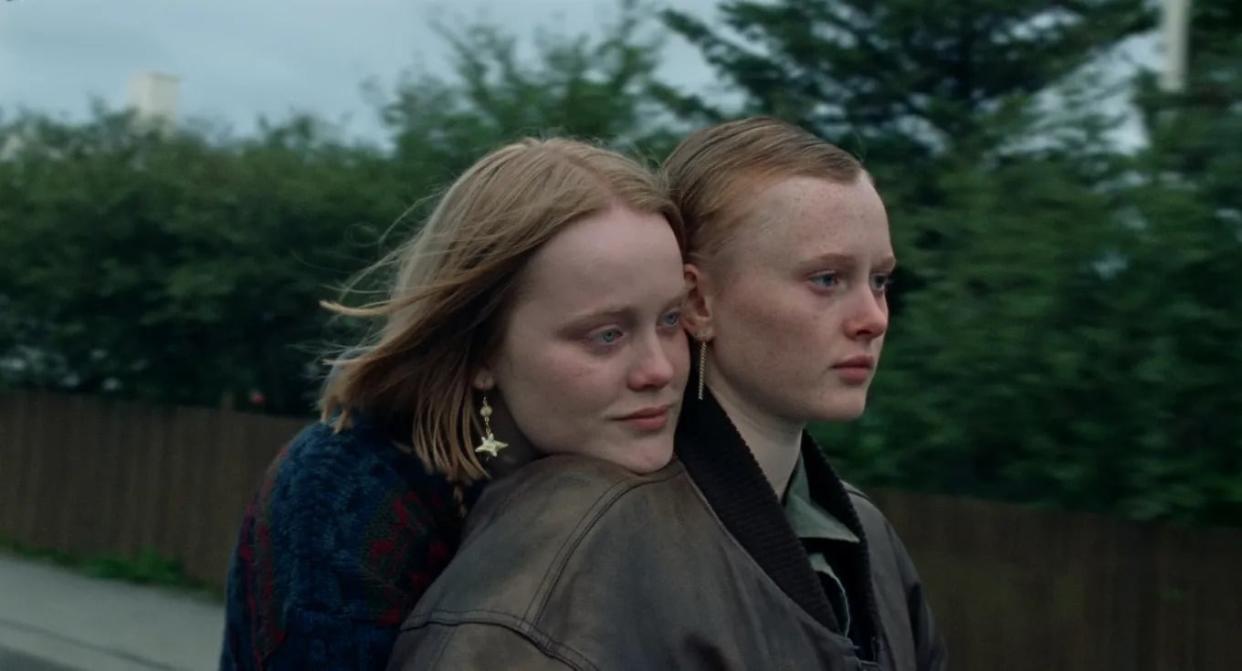‘When the Light Breaks’ Review: A Dark Scandi Drama About What Happens When Grief Isn’t Allowed

In movies (as in real life), when a boy promises another paramour that he’s going to break up with his girlfriend, he’s usually lying. Una (Elín Hall) seems clever enough to know better, but she trusts Diddi (Baldur Einarsson), a tall, handsome and charismatic student at her art school in Reykjavik, Iceland. They fantasize about where they most want to be — Diddi says Japan and Una, having traveled plenty as a young child and preferring peace and quiet at the grand old age of 19, opts for the Faroe Islands, a tiny archipelago between Iceland and the north of Scotland. Diddi mocks Una’s lack of ambition, but he does appear sincere when he says he’ll break up with his girlfriend Klara (Katla Njálsdóttir) before a flight the following morning.
Diddi never makes it to Klara, and he can’t be blamed for failing to break up with her. He’s one of a dozen or so people killed in a tunnel fire, the worst road accident in Iceland’s history. Director Rúnar Rúnarsson’s “When the Light Breaks” is mostly refined in its visual choices, but this wordless sequence is tremendously gripping to watch, a few seconds of sound and fury that set up eighty minutes of grey ennui that look more like a modernist painting populated by stickmen in top hats.
More from IndieWire
What “When the Light Breaks” is really about is a cruel kind of grief in which a person isn’t even allowed to publicly miss someone too much, for fear of giving the game away. Una may dress like Jimmy Sommerville, with gold hoop earrings and an oversized brown leather jacket, but she’s got an outer softness that clashes with her punky, super short red hair. Hall is very good at being silent and thoughtful, a combination that underwrites her performance, which is anything but flashy.
Only one of Diddi’s friends seems to realize what’s up, and advises Una keep her truth from Klara for fear of making her heartbreak worse. There’s an injustice to that which Rúnarsson is particularly interested in: of course Una should be allowed to wail in full view like Klara does, but instead she has to whimper at the sidelines, knowing full well that Klara’s tears are shed at least partly out of ignorance.
That’s a lot to deal with in eighty minutes, and “When the Light Breaks” is the rare film that might benefit from being a good deal longer. It’s certainly well made and has enough to say to have been assured of this critic’s goodwill for quite some time longer, and might have been able to explore the messy implications of its premise in an even more interesting way. But in being set over only a few days and introducing us only to characters it strictly needs to, “When the Light Breaks” also has a very clear sense of its own limits.
The best parts come toward the end, when Una and Klara start to spend more time together, and find an unlikely, unequal bond in what they’re going through. Njálsdóttir as Klara is particularly good at a level of naive sincerity that, to Una and us, borders on cringe. But she knows only what she knows, it’s as if Njálsdóttir wasn’t given Una’s pages of the script. Yet, this never feels like soap opera, and the way characters relate to each other feels very authentic. (The most unrealistic part of “When the Light Breaks” is when Una needs to borrow an iPhone charger and none of her classmates have one.)
And Sophia Olsson’s (“The Crown”) cinematography is arresting but never cliched: this isn’t the Iceland of “Eurovision Song Contest: The Story of Fire Saga” or “The Secret Life of Walter Mitty” — loving as both films are — but rather of a small city surrounded by picturesque villages, all populated by bored teenagers. There’s no flowing lava, and its emotional swings are appropriately dormant for the most part. One particular highlight is the use of funereal music by the late, great Icelandic composer Jóhann Jóhannsson (“Sicario,” “Arrival”), a window into Una’s suffering, lessened only by an unlikely alliance with someone who should be her worst enemy.
The Un Certain Regard competition at Cannes is much more than a best-of-the-rest, even bettering the main Competition some years, and “When the Light Breaks” is a strong opening entry from a country perhaps not particularly known for its cinematic accomplishments just yet. All involved are doing good, meaningful work with a simple script and a story that explains little. Rúnarsson has already shot his next film, “O,” a short. If he has bottled some of what makes this film so impressive, we should look forward to it.
Grade: B
“When the Light Breaks” premiered at the 2024 Cannes Film Festival. It is currently seeking U.S. distribution.
Best of IndieWire
Sign up for Indiewire's Newsletter. For the latest news, follow us on Facebook, Twitter, and Instagram.

 Yahoo News
Yahoo News 
